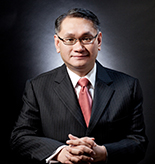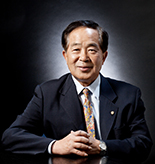(Adopted by the Company pursuant to the Board resolution passed on 30 August 2013)
1. Purpose
This Policy aims to set out the approach to achieve diversity on the Company’s board (“Board”) of directors (“Directors”).
2. Vision
2.1 The Company recognises and embraces the benefits of having a diverse Board to enhance the quality of its performance.
3. Policy Statement
3.1 The Company recognises and embraces the benefits of diversity in Board members. A
truly diverse Board will include and make good use of differences in the skills, regional and industry experience, background, race, gender and other qualities of Directors. These differences will be taken into account in determining the optimum composition of the Board. All Board appointments will be based on merit while taking into account diversity including gender diversity.
4. Measurable Objectives
4.1 The Nomination Committee will discuss and agree annually measurable objectives for implementing diversity on the Board and recommend them to the Board for adoption.
4.2 The Company aims to build and maintain a Board with a diversity of Directors, in terms of skills, experience, knowledge, expertise, culture, independence, age and gender.
5. Monitoring and Reporting
5.1 The Nomination Committee will report annually, in the Corporate Governance Report, on the Board’s composition under diversified perspectives, and monitor the implementation of this Policy.
6. Review of this Policy
6.1 The Nomination Committee will review this Policy, as appropriate, to ensure the effectiveness of this Policy. The Nomination Committee will discuss any revisions that may be required, and recommend any such revisions to the Board for consideration and approval.
7. Disclosure of this Policy
7.1 This Policy will be published on the Company’s website for public information.
7.2 A summary of this Policy together with the measurable objectives set for implementing this Policy, and the progress made towards achieving those objectives will be disclosed in the annual Corporate Governance Report.
Note: If there is any inconsistency between the English and Chinese versions of this document, the English version shall prevail.
Shareholder of Beijing Properties (Holdings) Limited may refer to the procedures below for proposing a person for election as a director of the Company:
Pursuant to the Bye-Law (116) of the Company, no person other than a director retiring at the meeting shall, unless recommended by the board for election, be eligible for election to the office of director at any general meeting unless notice in writing of the intention to propose such person for election as a director, signed by a shareholder (other than the person to be proposed for the election as a director) duly qualified to attend and vote at the meeting for which such notice is given, and a notice in writing signed by such person of his willingness to be elected including such person’s biographical details as required by rule 13.51(2) of the Rules Governing the Listing of Securities on The Stock Exchange of Hong Kong Limited, shall have been lodged at 66th Floor, Central Plaza, 18 Harbour Road, Wanchai, Hong Kong or at 26th Floor, Tesbury Centre, 28 Queen’s Road East, Wanchai, Hong Kong. The minimum length of the period during which such notices are given shall be at least 7 days and the period for lodgment of such notices shall commence no earlier than the day after the despatch of the notice of the general meeting appointed for such election and end no later than 7 days prior to the date of such general meeting.
If the notice is received less than 10 business days prior to the date of such general meeting, the Company will need to the adjournment of such general meeting in order to allow shareholders 10 business days’ notice of the proposal.
1. Purpose
1.1 This policy aims to set out the provisions with the objective of ensuring that the Company’s shareholders (the “Shareholders”), and, in appropriate circumstances, the investment public, are provided according to Rules Governing the Listing of Securities on The Stock Exchange of Hong Kong Limited (“SEHK”) (the “Listing Rules”) with ready, equal and timely access to balanced and understandable information about the Company. The Company believes that effective communication with Shareholders are essential for enhancing investor relations and investors’ understanding of the Company’s business performance, strategic goals and plans, material developments and governance. The Company also recognizes the importance of transparency and timely disclosure of corporate information, which enables Shareholders to make the most informed investment decisions. The goal of our communication activities is to provide a true and fair view of the Company.
1.2 For the purpose of this policy, references to the investment public would include the Company’s potential investors as well as analysts reporting and analyzing the Company’s performance.
2. General Policy
2.1 The Board shall maintain an on-going dialogue with Shareholders and the investors, and will regularly review this policy to ensure its effectiveness.
2.2 Information shall be communicated to Shareholders and the investors mainly through the Company’s financial reports (interim and annual reports), annual general meetings and other general meetings that may be convened, as well as by making available all the disclosures submitted to SEHK and the Company’s website.
2.3 Effective and timely dissemination of information to Shareholders and the investors shall be ensured at all times. Any question regarding this policy shall be directed to the Company Secretary of the Company.
3 Shareholders’ Meetings
3.1 Shareholders are encouraged to participate in general meetings or to appoint proxies to attend and vote at meetings for and on their behalf if they are unable to attend the meetings.
3.2 Appropriate arrangements for the annual general meetings shall be in place to encourage Shareholders’ participation.
3.3 The process of the Company’s general meeting will be monitored and reviewed on a regular basis, and, if necessary, changes will be made to ensure that Shareholders’ needs are best served.
3.4 Board members, in particular, either the chairmen or deputy chairmen of Board committees or their delegates, appropriate management executives and external auditors will attend annual general meetings to answer Shareholders’ questions.
3.5 Shareholders are encouraged to attend Shareholders’ activities organised by the Company, where information about the Company, including its latest strategic plan, products and services etc will be communicated.
4. Communications with Investment Public
4.1 Investor/analysts briefings and one-on-one meetings, media interview and marketing activities for investors etc will be available where necessary in order to facilitate communication between the Company, Shareholders and the investment public.
4.2 The Company’s officers who have contacts or dialogues with investors, analysts, media or other interested outside parties are required to comply with the relevant disclosure obligations and requirements under the Listing Rules.
5. Corporate Communication *
5.1 Corporate communication will be provided to Shareholders in plain language and in both English and Chinese versions to facilitate Shareholders’ understanding. Shareholders have the right to choose the language (either English or Chinese) or means of receipt of the corporate communications (in hard copy or through electronic means).
5.2 Shareholders are encouraged to provide, amongst other things, in particular, their email addresses to the Company in order to facilitate timely and effective communications.
* Corporate Communication refers to any document issued or to be issued by the Company for the information or action of holders of any of its securities, including, but not limited to, the directors’ report and annual accounts together with a copy of the auditor’s report, the interim report, a notice of meeting, a circular and a proxy form.
6. Corporate Website
6.1 A dedicated Investor Relations section is available on the Company’s website www.bphl.com.hk. Information on the Company’s website is updated on a regular basis.
6.2 Information released by the Company to HKExnews website is also posted on the Company’s website immediately. Such information includes financial statements, results announcements, circulars and notices of general meetings and associated explanatory documents etc.
6.3 All presentation materials provided in conjunction with the Company’s annual general meeting and results announcement each year will be made available on the HKEx website as soon as practicable after their release.
7. Shareholder Privacy
7.1 The Company recognizes the importance of Shareholders’ privacy and will not disclose Shareholders’ information without their consent, unless required by relevant rules and legislations to do so.
(Adopted by the Company pursuant to the Board resolution passed on 15 February 2019)
1 Objective
1.1 The nomination committee of the Company (the “Nomination Committee”) shall nominate suitable candidates to the board of directors of the Company (the “Board”) for it to consider and make recommendations to shareholders for election as the directors of the Company (the “Directors”) at general meetings or appoint as Directors to fill casual vacancies.
1.2 The Nomination Committee may, as it considers appropriate, nominate a number of candidates more than the number of Directors to be appointed or re-appointed at a general meeting, or the number of casual vacancies to be filled.
2 Selection Criteria
2.1 The factors listed below would be used as reference by the Nomination Committee in assessing the suitability of a proposed candidate.
Reputation for integrity;
Accomplishment and experience ;
Commitment in respect of available time and relevant interest;
The Company’s board diversity policy that ensures the Board has diversity in all its aspects, including but not limited to gender, age (18 years or above), cultural and educational background, ethnicity, professional experience, skills, knowledge and length of service; and
In the case of independent non-executive Directors, the independence of the candidate (the independence requirements as set out under any applicable laws, rules and regulations shall have been met).
These factors are for reference only, and not meant to be exhaustive and decisive.
2.2 Subject to the provisions of the Bye-laws of the Company, retiring Directors are eligible for nomination by the Board to stand for re-election at a general meeting.
2.3 Proposed candidate will be asked to submit his/her necessary personal information in a prescribed form, together with his/her written consent to be appointed as a Director and to the public disclosure of his/her personal data on any documents or the relevant websites for the purpose of or in relation to his/her standing for election as a Director.
2.4 The Nomination Committee may request candidates to provide additional information and documents, if considered necessary.
3 Nomination Procedures
3.1 The Secretary of the Nomination Committee shall call a meeting of the Nomination Committee, and invite nominations of candidates from Board members if any, for consideration by the Nomination Committee prior to its meeting. The Nomination Committee may also put forward candidates who are not nominated by Board members.
3.2 For filling a casual vacancy, the Nomination Committee shall make recommendations for the Board’s consideration and approval. For proposing candidates to stand for election at a general meeting, the Nomination Committee shall make nominations to the Board for its consideration and recommendation.
3.3 Until the issue of the relevant circular to the Company’s shareholders, the nominated persons shall not assume that they have been proposed by the Board to stand for election at the general meeting.
3.4 In order to provide information of the candidates nominated by the Board to stand for election at a general meeting, and to invite nominations from shareholders, a circular will be sent to the Company’s shareholders. The circular will set out the lodgment period for the Company’s shareholders to make the nominations. The names, brief biographies (including qualifications and relevant experience), independence, proposed remuneration and any other information, as required pursuant to the applicable laws, rules and regulations, of the proposed candidates will be included in the circular to the Company’s shareholders.
3.5 A shareholder of the Company can serve a notice to the Company Secretary within the lodgement period of its intention to propose a resolution to elect a certain person as a Director, without the Board’s recommendation or the Nomination Committee’s nomination, other than those candidates set out in the circular to the Company’s shareholders. The particulars of the candidates so proposed will be sent to all shareholders for information by a supplementary circular.
3.6 A candidate is allowed to withdraw his candidature at any time before the general meeting by serving a notice in writing to the Company Secretary.
3.7 As there may be more candidates than the vacancies available, and the “gross-vote” method will be used to determine who shall be elected as a Director, shareholder’s proposed resolutions shall therefore take the same form as the resolutions proposed for the candidates recommended by the Board.
4 Confidentiality
4.1 Unless required by law or any regulatory authority, under no circumstances shall a member of the Nomination Committee or a staff member of the Company disclose any information to or entertain any enquiries from the public with regard to any nomination or candidature before the circular to the Company’s shareholders, as the case may be, is issued. Following the issue of the circular, the Nomination Committee or Company Secretary or other staff member of the Company approved by the Nomination Committee may answer enquiries from the regulatory authorities or the public but confidential information regarding nominations and candidates should not be disclosed.
5 Power and Responsibility of the Board
5.1 The Board shall have the ultimate responsibility and final decision on all matters relating to its recommendation of candidates to stand for election at any general meeting.
5.2 The Board shall disclose the policy for the nomination of Directors performed by the Nomination Committees in its corporate governance report, as required pursuant to the applicable laws, rules and regulations.
5.3 The Board shall monitor and review the nomination policy to ensure that it remains relevant to the Company’s needs and reflects both the regulatory requirements effective from time to time and good corporate governance practice.
(Adopted by the Company pursuant to the Board resolution passed on 15 February 2019)
Subject to any restrictions under the Laws of Bermuda, the Bye-Laws of the Company and any applicable laws, rules and regulations, the Company may declare dividend according to the recommendation of the board of directors of the Company (the “Board”). The Company may in its full discretion decide not to declare dividend due to various reasons, including but not limited to maintaining or adjusting the capital structure and reserving more capital to capture opportunities, etc.
In deciding whether to propose a dividend and in determining the dividend amount, the Board shall take into account, inter alia:-
(i) the general financial condition of the Group;
(ii) the Group’s actual and future operations and liquidity position;
(iii) the Group’s expected working capital requirements and future expansion plans;
(iv) the Group’s debt to equity ratios and the debt level;
(v) any restrictions on payment of dividends that may be imposed by the Group’s lenders;
(vi) the retained earnings and distributable reserves of the Company and each of the members of the Group;
(vii) the shareholders’ and the investors’ expectation and industry’s norm;
(viii) the general market conditions; and
(ix) any other factors that the Board deems appropriate.
According to the Bye-laws of the Company, the Company may declare dividend according to the recommendation of the Board. No dividend shall be paid or distribution made out of contributed surplus if to do so would render the Company unable to pay its liabilities as they become due or the realisable value of its assets would thereby become less than its liabilities.
According to the Bermuda Companies Act, the Company cannot declare or pay a dividend, or make a distribution, out of contributed surplus if: (a) it is, or would after the payment be, unable to pay its liabilities as they become due; or (b) the realisable value of its assets would thereby be less than the aggregate of its liabilities and its issued share capital and share premium accounts.
(Adopted by the Company pursuant to the Board resolution passed on 27 February 2023)
1 PURPOSE
Beijing Properties (Holdings) Limited (the “Company”) and its subsidiaries (collectively the “Group”) are committed to abiding by all laws and regulations or if necessary to exceeding them, to prevent corruption and bribery in all business dealings. This Policy provides information and guidance to our personnel on how to recognize and deal with bribery and corruption, and applies to all employees and contract workers of the Group.
2 SCOPE
Corruption and bribery include any illicit advantage offered or accepted as an inducement to or a reward for performing or abstaining from performing any duties. Items considered bribes include cash, cash equivalents, loans, commissions, benefits in kind or other advantages, but excluding traditional gifts of nominal value given during festive seasons. In this Policy, the following words shall have the meanings set out below:
“advantage” shall mean paying or giving anything of value directly or indirectly, or any other action, such as any office, employment or contract; any payment or discharge of any loan or other liability; any other service or favour; the exercise or forbearance from the exercise of any right or any power or duty; and any offer, undertaking or promise;
“bribes” shall mean anything of value given in an attempt to affect a person’s actions or decisions in order to gain or retain a business advantage;
“hospitality” shall mean meals, receptions, tickets to entertainment, social or sports events; and
“kickback” shall mean the return of a sum already paid or due as a reward for awarding further business
The Group will take steps to prevent bribery by our team members, suppliers or associated persons. The policy will address four main areas:
a) Bribing another person
This is defined if you offer, promise or give an advantage (financial or other) to another party where you intend that advantage to induce the other party to perform improperly a relevant function or activity or reward such conduct.
b) Being bribed
Same definition as above except that you are the recipient in the transaction.
c) Bribing a Foreign Official
Any inducements to foreign officials, even if custom and practice in that country.
d) Failure to prevent bribery
The business can be liable if any party associated with it bribes another person for the ultimate benefit of the business.
This policy sets the Group's stance on the implementation and management of anti-bribery and anti- corruption measures across the Group's business operations in accordance with relevant government legislation.
The following policy principles address the main areas of risk associated with corporate bribery and corruption. These procedures cannot address every conceivable situation, but the spirit of the procedures should be followed at all times to help you make the right decision. Always on the side of caution and if you are in any doubt, contact your Head of Department or Human Resources Department before taking any action.
3 POLICY
1. Prevention of Bribery Ordinance
i. The Group strictly prohibits any form of bribery or corruption.
ii. Employees are required to conduct themselves with integrity, in an ethical and proper manner, and in compliance with all applicable laws and regulations of the jurisdictions in which the Group operates, including anti-bribery laws.
2. Working in Other Jurisdictions
i. Employees should observe and comply with local laws and regulations pertaining to anti-bribery and business ethics when conducting business in other jurisdictions on behalf of the Group.
3. Soliciting Advantages
i. The Group prohibits the solicitation of any advantage by an employee from clients, contractors, suppliers, government officials or any person, in connection with the Group’s business.
ii. Any facilitating payment is strictly prohibited.
4. Accepting Advantages
i. Under the Prevention of Bribery Ordinance (Cap. 201), ‘advantage’ means:
any gift, loan, fee, reward or commission consisting of money or of any valuable security or of other property or interest in property of any description;
any office, employment or contract;
any payment, release, discharge or liquidation of any loan, obligation or other liability, whether in whole or in part;
any other service or favour (other than entertainment), including protection from any penalty or disability incurred or apprehended or from any action or proceedings of a disciplinary, civil or criminal nature, whether or not already instituted;
the exercise or forbearance from the exercise of any right or any power or duty; and
any offer, undertaking or promise, whether conditional or unconditional, of any advantage within the meaning of any of the preceding paragraphs.
ii. Provided that the advantage is not given to influence any business decision or the performance of his or her duties, an employee is permitted to accept the following only:
Employees may accept non-cash gifts not exceeding HK$500 in value when attending social occasions on behalf of the Group, with the exception of souvenirs inscribed with the organisation’s logo and of limited commercial value;
Employees may accept hampers during festive seasons (when such hampers are traditionally exchanged);
An employee may accept ‘Lai See’ not exceeding HK$500. If an employee receives a ‘Lai See’ that exceeds HK$500, it should be returned to the giver immediately. If the giver cannot be identified, the employee must surrender the ‘Lai See’ to the Group Human Resources Department via the employee’s Department Head for further action; and
Commercial discounts which are equally available to other persons outside the Group.
iii. The Group does not allow its staff to accept gifts from tenants/ licensees/ occupiers/ visitors/ third parties in relation to any external organisation’s contracts, including contracts tendered by the government entities and quasi-government entities.
iv. If the employee suspects the acceptance of an advantage could affect the proper discharge of his or her duties or place the employee under an obligation to act against the Group’s interests, he or she should always decline to accept the advantage.
v. Any free trips or travelling expenses are considered as advantages. Without the prior consent of the Group, acceptance of such advantages is strictly prohibited.
5. Offering Advantages
i. The Group prohibits offering of any advantage by an employee to clients, contractors, suppliers, government officials or any person, in connection with the Group’s business.
ii. Offering of gifts should be exercised with caution and in compliance with the Group’s guidelines on gifts and hospitality.
iii. Offering free trips or reimbursing travelling expenses incurred that are directly for the purpose of promoting, demonstrating or certifying the Group’s business and service may be proper, with the prior consent of the Group.
6. Charitable Contributions
i. The Group participates in charitable activities and encourages employees to do the same, under circumstances that comply with applicable laws and regulations. Charitable contributions should never be made to influence any business decision.
7. Political Contributions
i. Employees should never use the Group’s resources in connection with his or her personal political activities. Political contributions should always be made at the employee’s own time and expense, without any linkage with the Group, and under circumstances that comply with applicable laws and regulations. The Group will not reimburse any personal political contributions.
8. Entertainment
i. Employees may accept invitations to business lunches or dinners from business associates provided they are not lavish, unreasonably generous or frequent that may give rise to any potential or real conflicts of interest. Employees are encouraged to attend such events with other colleagues(s) and not alone.
ii. Since departments may have different entertainment needs, Department Heads will provide specific guidelines to employees on accepting entertainment invitations from third parties. To uphold integrity, all entertainment must pass the ‘Sunshine Test’ i.e. the entertainment is disclosed openly, without any sense of misgiving.
iii. Where declining an invitation could be interpreted as being impolite, an employee may accept on the understanding that he or she will be allowed to reciprocate.
4 REPORTING CONCERNS
Every employee has a duty to report any potential violations of this Policy, when an employee becomes aware of a violation or potential violation of this Anti-Bribery & Anti- Corruption Policy, please report in accordance with the Whistleblower Policy.
We will take all reported concerns seriously and will confidentially investigate to determine if the law or the Anti-Bribery & Anti-Corruption Policy has been contravened. All reported concerns in relation with this policy will be relayed to the business leaders including the outcome of any investigation.
5 REVIEW AND MONITORING
This policy will be reviewed periodically to ensure it remains relevant to the Company’s needs and reflects both regulatory requirements and good corporate governance practices.
Note: If there is any inconsistency between the English and Chinese versions of this document, the Chinese version shall prevail.
(Adopted by the Company pursuant to the Board resolution passed on 27 February 2023)
1. Background
1.1 Beijing Properties (Holdings) Ltd (the “Company”) is committed to upholding the 2highest standards of openness, integrity and ethical business conduct. The whistleblowing policy (the “Policy”) constitutes an important part of effective risk management and internal control. The Policy applies to the Company and its affiliates (collectively, the "Group").
1.2 "Whistleblowing" means an employee or a third party (the "Whistleblower") decides to make a good-faith report of any actual or suspected misconduct or bad conduct (the " Report Matters") concerning the Company.
2. Purpose
2.1 Encourage and assist the Group's employees ("Employees") or third parties (such as customers and suppliers) to put forward the Report Matters and disclose their relevant information confidentially and anonymously.
2.2 Provide reporting channels and guidelines for Employees or third parties to raise concerns instead of ignoring issues.
2.3 Detect and deter suspected fraud, irregularities or misconduct before the Group is affected or suffers losses.
3. Responsibility
3.1 The audit committee of the Company (the “Audit Committee”) is the ultimate person in charge of the Policy, and the internal control department is assigned to supervise and implement the daily operations of the Policy.
3.2 The Audit Committee is responsible for monitoring and reviewing the effectiveness of the Policy and actions after report and investigation.
3.3 The Policy has been approved by the Audit Committee. Any amendments or updates must be approved by the Audit Committee before implementation.
4. Report Matters
4.1 The Report Matters include but not limited to the following fraud or violations:
a. Criminal offenses
b. Violation of laws and regulations
c. Bad conduct, impropriety or fraud involving internal controls, accounting, auditing and financial matters
d. Misuse or misappropriation of the Group's assets or resources
e. Endanger the health and safety of Employees or other stakeholders
f. Violation of the Group's policies or guidelines
g. Improper use or disclosure of confidential or commercially sensitive information
h. Deliberately concealing the above matters
4.2 The Whistleblower is not required to fully verify the Report Matters. Even if the Report Matters cannot be confirmed in the end, the Group is grateful for all kind reports.
5. Protection for the Whistleblower
5.1 Whistleblower in good faith should be treated fairly. Even if the Report Matters cannot be established, the Group is committed to protecting the Whistleblower from unfair dismissal, harm or unreasonable punishment. "Good faith" means that the Whistleblower has reasonable grounds to believe that the Report Matters is true and is making a report based on honesty instead of personal gain or other malicious motives.
5.2 Management shall ensure that the Whistleblower feels secure and free from fear of reprisal. Any type of retaliation will be considered inappropriate and will result in disciplinary action.
5.3 Conversely, if the Whistleblower provides false reports intentionally or maliciously, or involves ulterior motives or personal interests, the Group reserves the right of recourse against anyone (Employees or third parties) to recover losses.
6. Confidentiality
6.1 The Group will endeavor to keep the identity of the Whistleblower and the Report Matters confidential.
6.2 Similarly, the Whistleblower should also keep the details of the Report Matters strictly confidential, such as the nature and related persons.
6.3 In certain circumstances, the Group will take all reasonable steps to ensure that the Whistleblower will not be harmed if it is necessary to disclose the identity of the Whistleblower in accordance with laws and regulations.
6.4 The Policy encourages the Whistleblower to make disclosures in real names. In comparison, concerns raised anonymously are less credible and could create difficulties for an effective investigation but will still be considered by the Audit Committee at its discretion. The Audit Committee will consider the following factors when exercising its discretion: the seriousness of the matters involved in the disclosure and the potential risks involved, the credibility of the Report Matters and the possibility of confirming the allegations from traceable sources.
6.5 The Group encourages the Whistleblower to come forward and provide as much detailed information as possible to assist in the assessment and investigation.
7. Reporting channel
7.1 If any Employees or third parties want to make a report, they can email to report@bphl.com.hk (read by personnel from the Group's internal control department) or Mail to "Beijing Properties (Holdings) Ltd - Internal Control Department" at 66th Floor, Central Plaza, 18 Harbor Road, Wanchai, Hong Kong.
7.2 The internal control department will record the reported cases received and the corresponding follow-up actions in the report registration form, and report to the Chairman of the Audit Committee in a timely manner.
7.3 If the personnel from the internal control department is the object of complaint, the Whistleblower must report to the Chairman of the Audit Committee by post at the same address.
7.4 Reporting a case should provide details of the misconduct, including the relevant incident, conduct or activity, name, date, location and any other relevant information.
7.5 In order to ensure confidentiality during the mailing process, please use a sealed envelope to post the reported case, and mark "Private and Confidential - For Recipients Only".
8. Investigation Procedure
8.1 After receiving a reported case, the internal control department should follow up the report in a timely manner. Regardless of whether the reported case is verified or not, the internal control department must report the reported case and verification results to the Audit Committee on a regular basis.
8.2 For cases that have been reported to the Executive Committee or the Chairman of the Audit Committee, the relevant committee or the Chairman of the Audit Committee will assess each case and determine the need for investigation. The findings will be reviewed by the Executive Committee and the Chairman of the Audit Committee to determine appropriate actions.
8.3 If the Executive Committee or the Chairman of the Audit Committee thinks fit, the reported case may be sent to relevant regulatory agencies, such as the Hong Kong Police Force, the Hong Kong Independent Commission Against Corruption or the Securities and Futures Commission, etc.
8.4 Investigations will be carried out during the group audit according to the guidelines of the Executive Committee or the Chairman of the Audit Committee, and a report will be submitted to the relevant committee or the Chairman of the Audit Committee after the investigation. If necessary, the Executive Committee or the Chairman of the Audit Committee will appoint suitable personnel who are not part of the group audit to conduct or assist in the investigation.
9. Review
9.1 The Company will review the Policy and whistleblowing mechanism from time to time to ensure its continuous effectiveness.
Note: If there is any inconsistency between the English and Chinese versions of this document, the Chinese version shall prevail.













